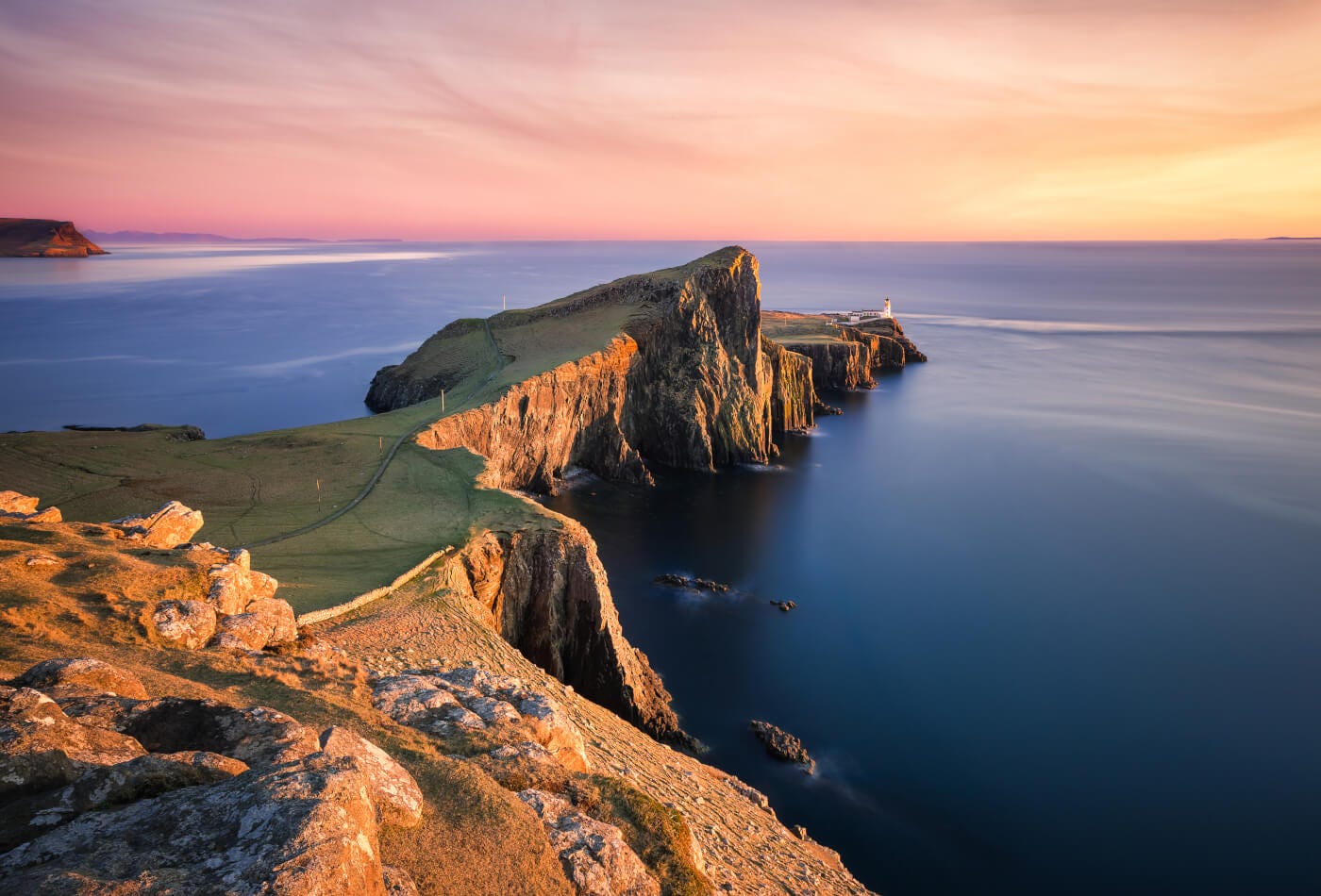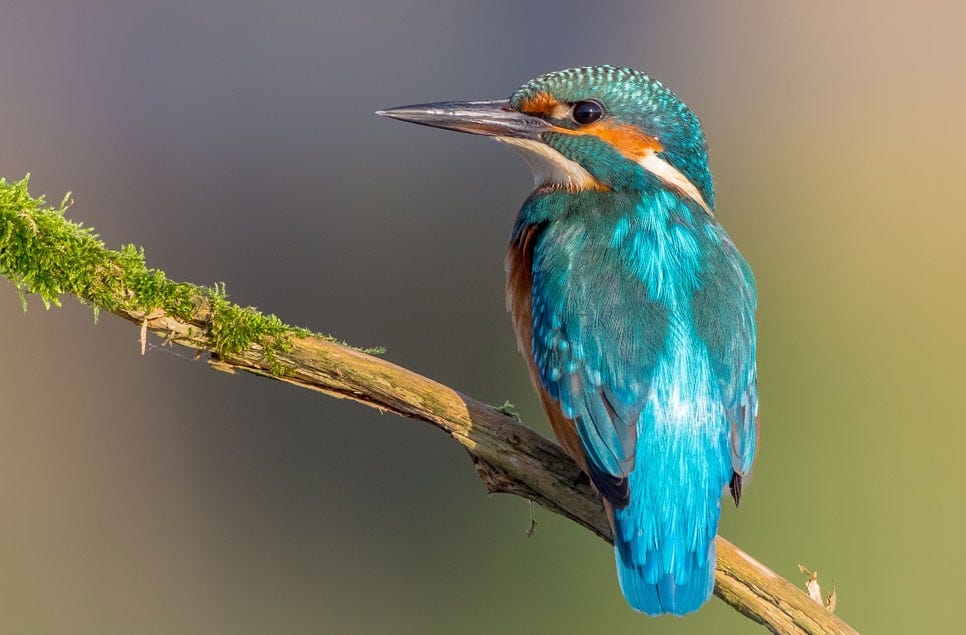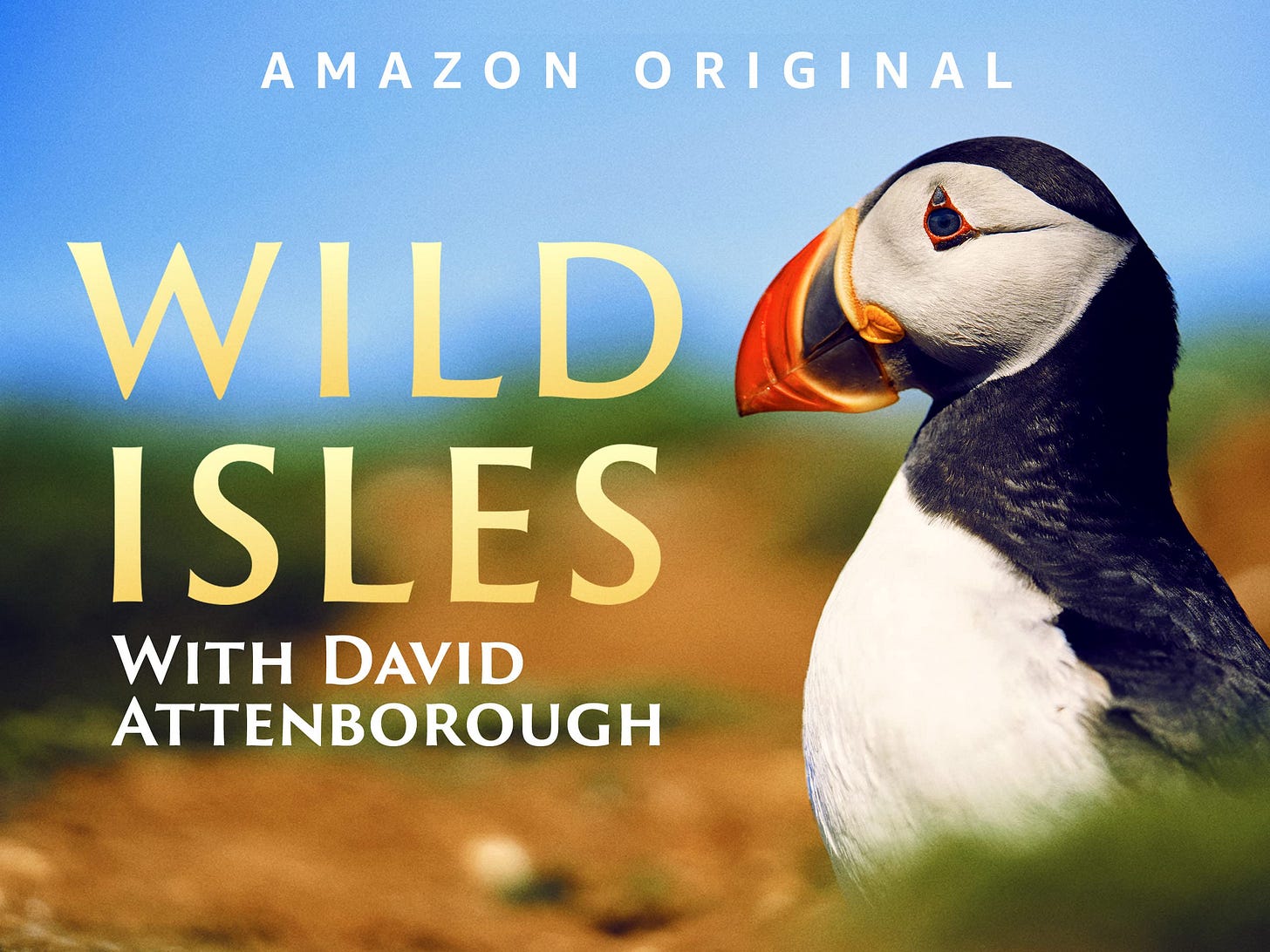This Sceptred Isle, This Other Eden . . . This (Wild) England!
David Attenborough has a new Nature series out this summer on Amazon Prime. This is big news at my house. And you thought the major headlines had to do with heat waves and indictments.
The iconic naturalist has become a beloved figure for the way he fills us with the wonder of our natural world while pricking our conscience with stories of how that beauty is vanishing. Who doesn’t love listening to David Attenborough talk about the mating habits of animals, the characteristics of rare flowers, and the beauty of an old tree? This series has him posing next to a 700-year-old oak, a tree that he has known since he was a boy. And yet there are half as many of these oaks as there were seventy years ago. Attenborough’s unwavering commitment to conservation, his intimate storytelling combined with that sing-song, low gravelly voice that breaks with bursts of childish enthusiasm has inspired generations to appreciate and protect the delicate balance of our planet's ecosystems. It’s the voice we’ve known all our lives, like that of a parent. And after a lifetime of far-flung expeditions to Africa, Asia, America, and the distant ends of the earth, with this new series, Attenborough returns to his starting place. Called “Wild Isles,” this is an intimate portrayal of the bold untamed beauty of Britain.
Perhaps because the long parade of naturalists and explorers such as Attenborough were always leaving maritime England, and also because much of the land was turned into sedate, cultured hillside pasture with its charming rock walls and country estates, we don’t think of Britain as the source of wilderness. This series corrects that. Watching in wrapt attention, my mind flickered with images of the wild characters and woods of D.H. Lawrence, the flowers and mountains of Wordsworth, and Shakespeare’s midsummer forest fairies. How could a small world that would fit into the state of Texas have produced such a tradition of literary genius and natural scientists without being a gem of wild wonder itself?
This sceptred isle, This earth of majesty, This other Eden, demi-paradise, indeed!
I remember watching Nature programs as a kid, but it was in my second year of university that I became wildly devoted and tuned in every Sunday at eight. The monkeys were my favorite. I’ve often asked myself if this wasn’t the greatest education I received in those years.
Growing up religious, evolution wasn’t taught at school. Then came Sunday nights glued to Nature. Evolution played out in obvious glory for 55 minutes. Why had I never noticed that almost all creatures on land had four limbs, two eyes, a nose, and a brain to run it all? I now think more about the differences we have with our animal cousins than I did in those days. (Do animals have a mind? If so, how far down the animal kingdom?) Back then I was overwhelmed by the sameness. We did not really have pets when we were kids. The neighbors had pigs and chickens. We were a family dedicated to humans and to god.
This was not a bad thing. As the Oxford mathematician John Lennox points out, the history of Westerners’ search for god and perfection led to natural philosophy, science, and knowledge. If I were talking to John tonight, I might ask him what is meant by perfection. And I would tell him about “Wild Isles.” Some might call it chauvinism to say that a god in the image of man is perfection. Why not gods in the image of killer whales featured in Episode One? After watching these magnificent beings hunt together, can we not imagine a whale Zeus, or Minerva? Or slugs such as the ash grey that are hermaphrodites and can act as both male and female during sex: we don’t come anywhere close to their reproductive and sensual expression. Why read science fiction when you can watch it play out in high resolution?
The new series is divided into five sections, Our Precious Isles, Woodland, Grassland, Freshwater, and Ocean.
Did you know there are temperate rainforests in the U.K.? The variety of coastal bird populations that nest in, on, and around the islands of Britain outdoes any place on the planet. They migrate from around the world, brought by the rich abundance of sea life. And the freshwater bird species? Rivers and streams run every few miles through the Isles. You haven’t lived this summer until you've watched the turquoise and sienna kingfisher take the bend of a stream at speeds more like Formula Uno.
Watching the series it is easy to understand why the English are known around the world for their wildflower gardens. The forest floors, the grasslands, and the meadows sport such an array of breathtaking blossoms that one becomes suddenly aware of how dry it is here in the U.S. We always hear about the poor British weather. On the other hand . . . what a canopy of oaks, pines, ash, and birch, what decadent color on the ground! Is it any wonder the British have been such dandies? (No offense to the rugby players.)
Attenborough comes back in each episode, as usual, to the precariousness of nature and the loss of habitat. Yet he has found so much wild still. And much has been brought back through restoration. A tender scene of unfulfilled love haunts the final episode, Ocean. Here, we can acknowledge those who film wildlife and make it possible for us to hunt with whales and soar with eagles while staying cool eating popcorn. Our aging, inspiring, always adventurous, and curious host takes time at the end of each episode to feature the extraordinary lengths the producers and crew go to bring us up close, for example, to a million birds roosting in the trees at night, or to salmon jumping up a three-meter waterfall. In this final episode, a tragic love scene comparable to the drama of Romeo and Juliet transpires. It is of cuttlefish, in their mating spot off the south coast. First, erotic, joyous connection and mating. Toward the end of the episode, we are brought back to this spot and many of the ravishingly lovely cuttlefish we have seen are caught up in a fishing cage. One of the males who is free still has his sights set on an attractive female who is bound, adoring him from behind cage bars. He swims up to the trap, attempting to reach through, but he cannot get to her. He tries again. It is no good. Attenborough acknowledges that there are enough cuttlefish in the sea, but asks the question, do we need to set our traps in their known breeding grounds?
As the planet becomes less wild, what responsibilities do we have? What will the term ‘wildness' mean to us in a century? These are questions familiar to the inhabitants of “Wild Isles."





